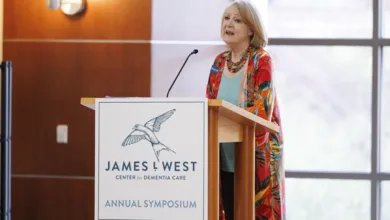The Danger of Being a People-Pleaser

You look so beautiful, but you shouldn’t come in all dressed up for an appointment.”
I wasn’t aware there was a specific “dress code” for a chiropractor visit!
Who makes up these ideas about things like dress codes, for example, and why do we just accept it as infallible and instead, question ourselves?
I could have people-pleased her with, “I guess you’re right,” and doubted my choices, placing my worth and value in the hands of a stranger.
But I said to myself, “Nope, not today. People-pleasing stops now.”
So I said, “Why not? I feel great! And this jumpsuit feels like pajamas — I love it!” Kind and honest.
I saw a light go on in her eyes, almost as if it awoke a little of her own authentic truth and poked a hole in her limiting belief systems.
Why Do We People-Please?
How many rules have we accepted in our lives that not only cast a shadow over our authentic selves but also force us to fit in for acceptance? I’ve so often not liked or wanted to do something — not to be difficult, but simply because it did not align with my authentic expression or honor my body. But I agreed emphatically so they wouldn’t feel bad.
We can never “make” someone happy. We can never “make” someone feel anything. All of this is based in our own perception and how we have learned to interpret life. We may be correct in recognizing someone’s feeling or emotion, we have not elicited that emotion from a person.
Each person has the autonomy to choose to express an emotion in reaction to a situation. A person’s programming or the way they interpret the world — and, more deeply, the way they view themselves — is the reason behind the emotion. The other person saying or doing something is not the responsible party.
Anyone who places that responsibility on another person is not only codependent, but also controlling and manipulative. The only responsibility we have is to be kind and honest, both to ourselves and others.
The Negative Impacts of People-Pleasing
1. It is not kind, because it is dishonest.
How so? First, it’s not an accurate representation of who you are, how you feel, or what you want. When we people-please, we dishonor our authentic wants and needs. We tell ourselves we don’t matter. We also say to the person we are people-pleasing they do not deserve our truth. Furthermore, it is also a false representation of who we are to another person, which follows that their “happiness” with us is not actually real. And deep down, we know it.
Let’s take a common people-pleasing situation of staying in a relationship that is no longer serving us. Our ego may creep in to tell us all kinds of lies about how we are being a good person, an honorable person: Wouldn’t you want someone to tell you they love you and would never leave you?
Sure.
But would I want them to say so when their true desire is to walk away, or to conceal they’ve found someone else, dishonoring both of us to people-please me?
Never.
The truth isn’t always comfortable, but people-pleasing creates a lie for everyone involved.
Dishonesty elicits the lowest vibrating emotion of shame, the idea we are bad. Since people-pleasing is not a representation of our truth, it is an attack on our authentic selves. When we do not speak our truth, we tell ourselves we don’t matter, because we are bad.
2. When we people-please we devalue ourselves.
We start to feel angry and resentful — not because of the request by the person we have tried to please, but because we have crossed our own boundaries.
But what if someone doesn’t like my truth or what I have to say?
People can have opinions. They can extend them to you, but you don’t have to take them on as your own! I always tell my clients to envision someone holding something in their hand. You decide whether to take it or let them hold onto it for themselves.
3. Being a people-pleaser prevents you from befriending yourself.
When we decide to stop people-pleasing, we start befriending ourselves. That is the most important task of our lifetime. You are the most important friend you will ever make in your life.
When you really want to become friends with someone, you listen to them. You respect them. You do kind, thoughtful, intentional things for them to show you care. It is not people-pleasing when it is a kind, honest, authentic expression of self.
Now, here’s the antidote to people-pleasing: Do those same things for yourself!
Know your worth. Stand in your power. Honor your truth. Avoid the dangers people-pleasing poses.





